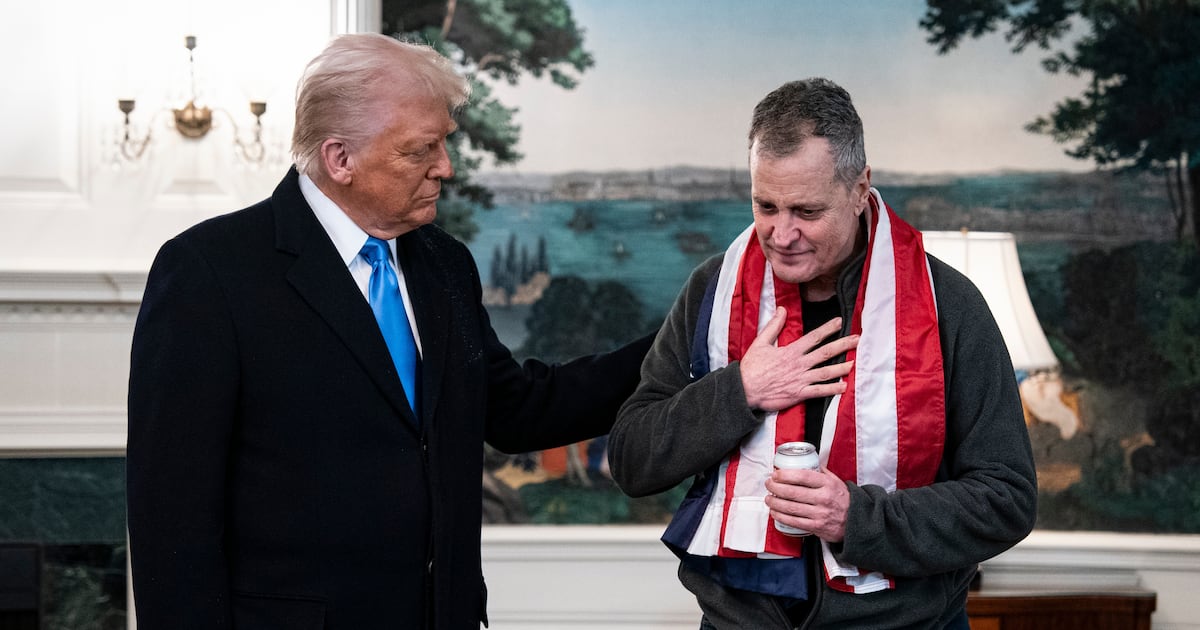The 20th anniversary of the tragic events of Sept. 11 has coincided with the supposed end of America’s longest war and haphazard withdrawal of troops from Afghanistan, raising fresh questions of how we got here in the first place.
In the immediate aftermath of the attacks, there was no clear guidebook on how to move forward. The entire country had just witnessed an unfathomable tragedy unfold as New York City’s Twin Towers fell to the ground.
The political machine quickly whirled into action, and with a freshly traumatized nation looking for healing and unity, was able to push through bills and acts that expanded government powers, including the Patriot Act and the Authorization for the Use of Military Force.
Even family-friendly Disney Channel played a part in hammering home the idea of nationalism in having a handful of its beloved child stars, including Hilary Duff, Shia LaBeouf, and twins Tia and Tamera Mowry, wax lyrical about the American flag. The cringeworthy clips resurfaced last month and were met with shock, including a spot that featured a brief address from then-first lady Laura Bush, who spoke of freedom and how the flag represents all Americans, no matter what their religion or beliefs.
It was in this same vein of thinly veiled propaganda wrapped up in patriotism that the country’s largest radio company, Clear Channel Communications (now iHeartRadio), attempted to ban more than 150 songs from the airwaves across its roughly 1,200 stations.
Any song that mentioned airplanes was targeted, as well as war, death, and fire. The de facto ban seemed primarily to target rock, punk, and heavy metal bands, such as Alice in Chains, System of a Down, and every single track by Rage Against the Machine. But relatively innocuous songs were included too, including “Walk Like an Egyptian,” because of its references to the Middle East; the hopeful lyrics of John Lennon’s “Imagine”; Louis Armstrong’s “What a Wonderful World”; and Frank Sinatra’s cheery “New York, New York.”
At the time, Clear Channel moved quickly to stamp out reports that it had issued a mandate that barred stations from playing these songs. But when the full list eventually leaked, top executives hurriedly placed the blame on those at the local level, calling it “a grass-roots effort that was apparently circulated among program directors,” although the final compiled list, known as the “Clear Channel memorandum,” was sent out by company management.
On the surface, it makes sense for stations perhaps not to play songs about death, airplane crashes, or anything doomsday-related out of an abundance of caution and sensitivity for freshly traumatized listeners, who had just witnessed a terrorist attack unfold in real time on their TVs. But in hindsight, it reeks of needless censorship.
Clear Channel’s actions don’t necessarily surprise Nora Pelizzari, director of communications for the National Coalition Against Censorship. She told The Daily Beast there can often be unquestioned support for censorship when it’s branded as an act of patriotism, done in the name of the greater good. And while Clear Channel didn’t necessarily violate any laws (as it is a private company and therefore has the right to freely choose what goes on its airwaves), Pelizzari believes it certainly violated the principles of free expression.
“For private companies to be making a blanket decision for the entire public about what they should or should not consume in a time of crisis is incredibly infantilizing,” Pelizzari says. “It also does a disservice to art in general and what music can do.”
Music has often served as a refuge for various tragedies and joys, and the events of 9/11 should have been treated no differently. Soul-soothing melodies of remembrance or in-your-face heavy metal music as a way to channel confusion and anger are ways to address these complicated emotions.
But Clear Channel deprived listeners of the ability to access these types of songs—which didn’t sit right with Peter Asher, of the English duo Peter and Gordon, who voiced his displeasure in 2001 to The New York Times when learning his songs “I Go to Pieces” and “A World Without Love” were on the list. “I suppose a song about someone going to pieces could be upsetting if someone took it literally,” he said. “But ‘I can’t live in a world without love’ is a sentiment that’s as true in crisis as it is in normal times. It’s a totally pro-love sentiment and could only be helpful right now.”
Pelizzari agrees. “It’s one thing to say, ‘Okay, we’re not going to release a movie that depicts anything eerily similar to what happened on 9/11 because we feel now is not the moment when that’s going to get a good response… But John Lennon's ‘Imagine’ was on that list. What’s the justification there? The idea that we shouldn’t be talking about peace, we shouldn’t be talking about people coming together as one—that somehow that was going to be the wrong moment to be talking about that?”
While some stations refused to pay any attention to the list, and Clear Channel was adamant it never issued an outright mandate, Pelizzari says it’s just semantics. “Censors love to say that they’re not banning anything, they’re just sort of making suggestions, or making it a little bit more difficult for people to make the choice to access something, [so therefore] that doesn’t constitute a ban,” she explains.
“But it’s a chilling effect. A DJ might say, ‘Oh, I’m allowed to play this song, but I don’t want to risk my job. I don’t want to be questioned by my boss. The path of least resistance is just not to play it, so I’m just not gonna play it.’ Over time, what does that do? The cumulative effect of that is that these songs just go away. We don’t hear them anymore.”
That chilling effect is exactly what happened with Drowning Pool’s hit single “Bodies,” with band member C.J. Pierce telling The Ringer in 2016 that the success of the song was nearly derailed by the ban because radio was the most prominent way for songs to reach fans at the time, taking years for the young Dallas band to recover. It was a sentiment that was also echoed by System of a Down’s Serj Tankian for their No. 1 song at the time “Lucy in the Sky with Diamonds,” which was essentially wiped from the charts.
Most of the banned songs were from rock or heavy metal bands, a fact not lost on Pierce, who told The Ringer that it’s unfair their listeners always seem to be unfairly targeted.
The genres have long been given the stepchild treatment by mainstream culture, who have always fear-mongered that this type of music would encourage listeners to become menaces to society.
“Some people go work out at the gym, and they like to listen to metal, just to get pumped up— that’s all it is, man,” Pierce said. “It’s rock ’n’ roll. It’s metal. It’s just a heavier style of music. I don’t know why metal always gets targeted. But it has been.”
It could also be because heavy metal and rock music have always been ready to buck the status quo and challenge authority. Every song by the famously political Rage Against the Machine was banned, a sign that Clear Channel believed it was “insensitive” to be critical of the U.S. government at the time.
“It just reinforces this sort of nativist patriotism that is really troubling to see reinforced by private companies, because what it really suggests is that dissent is unpatriotic, when in fact America is built on the right to disagree with the government,” Pelizzari says.
“We must be allowed to access dissenting views and opposing views to express our own dissent, our own confusion, our own anger, our own agreements. That’s how our democracy functions. Disagreement and debate are crucial to thoughtful decision-making. In times of crisis, it’s even more important to make sure that we’re allowing dissenting voices to be heard.”
Filter’s Richard Patrick summed it up best when telling The Ringer of how he was outraged when he learned the Ohio band’s 1995 song “Hey Man, Nice Shot” was included in the list.
“Did it really impact me? Yes, morally,” he said. “They self-censored ‘Hey Man, Nice Shot’ off the radio when everybody was saying, ‘Go back to your normal lives.’ They took away our First Amendment rights. That’s not the way you respond to terrorism… All of that is an attack on freedom. That is an attack on freedom—not playing music is an attack on freedom.”







